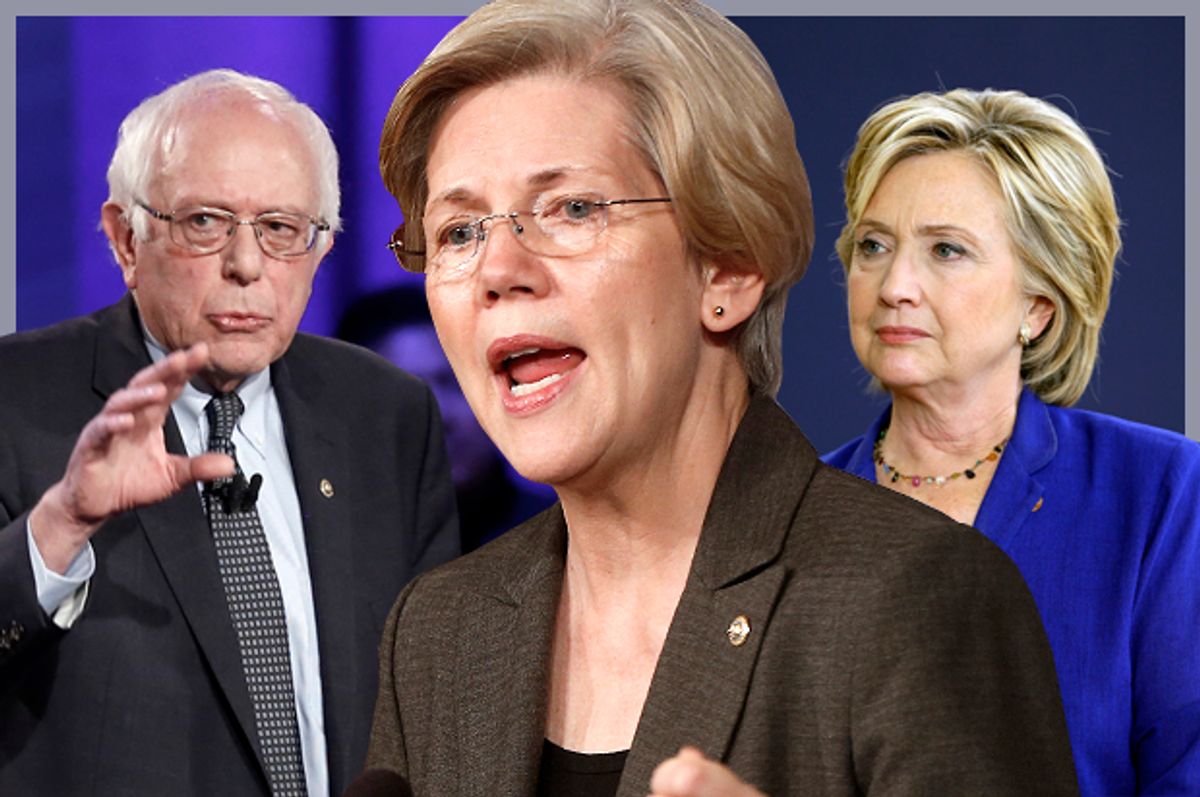Elizabeth Warren could have been the biggest political story of 2016. Well, at least, the biggest story other than Donald Trump. Right now, she could have been coasting toward a Super Tuesday landslide and locking up the Democratic nomination. It doesn't take a wild imagination to picture it.
Instead, Warren is nowhere to be found, unless you're a Democratic donor on the receiving end of DNC email blasts signed by the Massachusetts senator. Raising money like this — or lending her name to these emails — might be her biggest contribution to the Democrats in the 2016 cycle. And unfortunately, that's why Super Tuesday is likely to seal the nomination for Hillary Clinton tonight.
My point is not to relitigate Clinton vs. Bernie Sanders for the millionth time. That argument closed in Nevada, and screamed to a halt in South Carolina. Hillary Clinton will make a Democratic candidate in the same mold as her husband or Al Gore or John Kerry. If elected president, she'll likely carry on the Obama legacy, appointing the right Supreme Court justices and blocking the worst excesses of the gerrymandered Republican Congress, while also remaining the same politician who served as the senator from Goldman Sachs and toured war zones with Lindsey Graham and John McCain. Even most of Clinton's harshest critics from the left would pinch their noses and vote for her in a contest against Donald Trump.
Bernie Sanders ran a near-perfect race to make it this close, but was never likely to overcome Clinton's superdelegate and electoral map advantages without more debates and a stronger, sharper performance in them.

Shares